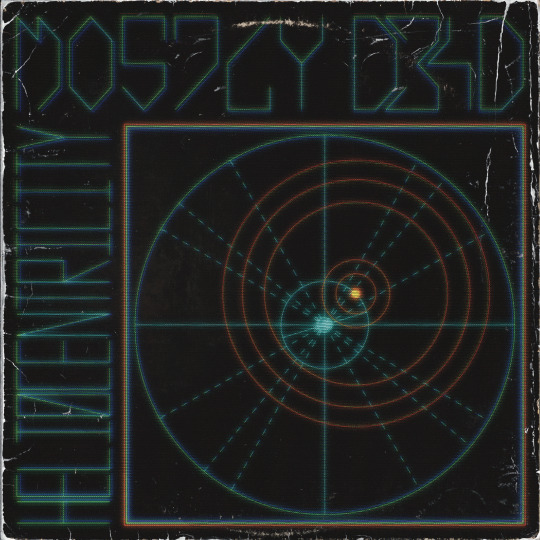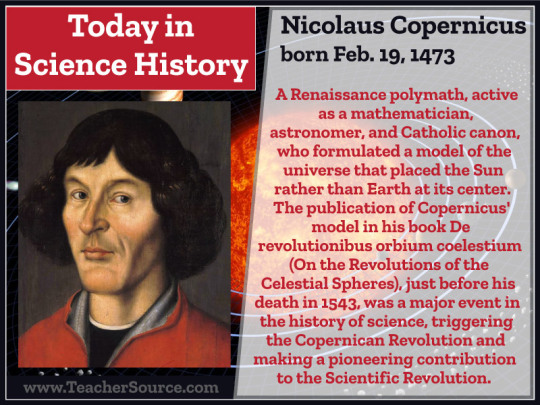#heliocentrism
Text

Ptolemy and Copernicus discussing their opposing views of the Universe ☀️ 🌎
#claudius ptolemy#nicolaus copernicus#heliocentrism#astronomy#anachronism#digital art#art#artwork#my art#artists on tumblr#ai generated
8 notes
·
View notes
Text


Hey 16th century astronomer Tycho Brahe, I just want to talk. What the fuck, man?
#tycho brahe#astronomy#heliocentric solar system#geocentric solar system#heliocentrism#tychonic solar system
14 notes
·
View notes
Text
faith
what is faith, anyway?
what god has made, no man should touch.
he has gone off to tamper with god’s earth.
stop your ears; let not satan come in.
satan has taken over all the world.
why are we so beholden to our beliefs and our stories?
is it fear of the unknown?
are we simply set in our ways?
why do the tales of men long-dead still matter so much to us?
god made this earth especially for man
the earth is the center of the universe
and the center stands still.
and yet, she moves,
she moves,
she moves.
there are moments of weariness and dullness.
but the very monotony is impressive.
it is monotony of a really monumental kind.
there is a grandeur about it.
how extraordinary that we exist.
found poem based off The Broken Globe by Henry Kreisel
#orthodox christianity#the broken globe#henry kreisel#found poem#geocentrism#heliocentrism#writers of tumblr#writers on tumblr#writblr#writeblr#writers#writing#writing poetry#writing poems#poem#original poem#poems on tumblr#poemblr#poetry#poems and poetry#my writing#my poem#my poetry#my posts
3 notes
·
View notes
Text

"Heliocentricity"
The universe doesn't revolve around us.
Made in Procreate.
#album cover#album art#album cover art#record cover#vinyl cover#graphic design#trippy art#graphic art#glitch art#glitch aesthetic#glitchcore#glitch#retro computers#conspiracy theories#heliocentrism#procreate
19 notes
·
View notes
Text
Fuck you, Flat Earthers. "There is no evidence."
I have to scooch over from where I'm sitting every day at work now because the sun shining through my window, which has been fine all summer, is now just barely glancing over a small fraction of my body as it passes and it is super distracting.
This is because the window of illumination is very slightly longer due to the imperceptibly small shift in positioning of the sun in the sky from where it was during the summer. Changes in the angle of where the sun rests causes corresponding changes to the size and positioning of the shadows it casts.
The consequence of which is that I have to do an annoying scoochy-scooch every morning! And I will not have people spreading lies about the shape of the universe when real science is making me scoochy-scooch!
5 notes
·
View notes
Photo

Galileo Galileo was born on February 15, 1561. An Italian astronomer, physicist, and engineer, sometimes described as a polymath, Galileo has been called the "father" of observational astronomy, modern physics, the scientific method, and modern science. Galileo's championing of Copernican heliocentrism was met with opposition from within the Catholic Church and from some astronomers. The matter was investigated by the Roman Inquisition in 1615, which concluded that heliocentrism was foolish, absurd, and heretical.
#galileo#galileo galilei#heliocentrism#astronomy#physics#the scientific method#heretics#science#science history#science birthdays#on this day#on this day in science history
3 notes
·
View notes
Text
A Serendipitous Solar Serenade: How Narcissus’s Love for the Sun Ushered in a Heliocentric Enlightenment
Oh, what a comedy of errors and ego led me, Narcissus, to pen such a lavish piece on the heliocentric model! Allow me to regale you with the tale of how my endless fascination with my own reflection inadvertently spiraled into an academic love affair with none other than the Sun itself. This is a story that transcends time, space, and modesty, culminating in the cosmic epiphany that perhaps, just perhaps, there exists a luminary almost as worthy of adoration as myself.
It all began on a day like any other, with me admiring my reflection in the crystal-clear waters of a secluded pond. The Sun, that cheeky ball of fire, decided it wanted in on the action, showering me with rays so warm and inviting that I could not help but feel it was attempting to court me. Flattered but firmly uninterested in any suitor not of my caliber, I nevertheless found myself intrigued by this persistent star.
Driven by a blend of vanity and newfound curiosity, I resolved to study this celestial body that dared vie for my attention. Armed with nothing but a borrowed telescope (a quaint little device I initially mistook for a particularly narrow mirror), I set my sights on the Sun, fully expecting to be unimpressed. Imagine my surprise when I discovered that the Sun, much like myself, was at the very center of a vast and adoring planetary system.
This revelation struck me with the force of a thousand adoring gazes. Could it be that the Sun and I were, in a manner of speaking, kindred spirits? Both of us, central figures in our respective circles, both commanding attention and inspiring orbits of admiration. The notion was so delightful, so flattering, that I decided then and there to become the Sun's unofficial biographer, detailing its central role in the cosmic theater in a manner only someone of my exceptional talent could.
The research was, admittedly, less about poring over dusty tomes and more about long, thoughtful gazes into the sky (and occasionally back into reflective surfaces, to ensure I hadn't lost my own luster in the process). I consulted with the leading minds of the age, each meeting inevitably turning into a lengthy discourse on my own brilliance before begrudgingly circling back to the subject of heliocentrism.
Through these dialogues, I learned of Copernicus, Galileo, and Kepler — fellow visionaries who, despite their glaring lack of personal beauty, had glimpsed truths about the universe that mirrored my own revelations regarding physical allure. Their struggles and triumphs, though not nearly as dramatic or aesthetically pleasing as my daily life, provided a rich tapestry of narratives from which I could draw parallels to my own radiant existence.
And so, my article was born, not just as a tribute to the heliocentric model but as a testament to the power of beauty, both mine and the Sun’s, to enlighten and lead. It was a work of genius, marrying scientific insight with unparalleled self-admiration, a love letter to the universe with a clear emphasis on the most important celestial body of all: me.
In penning this ode to heliocentrism, I inadvertently educated myself on the nuances of celestial mechanics, the gravitational forces at play, and the elegant ballet of planetary orbits. Yet, these cosmic phenomena, while fascinating, served only to underscore the central truth of my existence: that while the Sun may be the star of the physical universe, I remain the unrivaled center of the metaphorical one.
Thus, dear readers, we arrive at the present moment, with you hanging on my every word, eager to delve into the mysteries of the cosmos as only I can illuminate them. Remember, as we traverse the heavens together, that every discovery, every moment of awe, is but a reflection of the singular truth that ignited this scholarly endeavor: that Narcissus, in all his glory, is and always will be the true luminary around which all else revolves.
0 notes
Text
10 Mind Blowing Scientific Discoveries
youtube
Gravity Waves
When two massive objects like black holes collide, they create ripples called gravity waves. These waves were just an idea until scientists really found them in 2015. Imagine throwing a rock into a pond and watching the ripples - that's like gravity waves in space!
2. CRISPR Gene Editing
CRISPR is like a pair of scissors that can cut and change DNA. This lets scientists fix bad genes and could even cure diseases! It's like editing a sentence by replacing a wrong word with a right one.
3. Higgs Boson Particle
This tiny particle helps explain why things have mass. It's a bit like the secret ingredient in a recipe that makes everything work. Scientists found it in 2012, and it's a big piece of the puzzle about how the universe works.
4. Water on Mars
In 2015, scientists found signs of liquid water on Mars! This is exciting because where there's water, there might be life. Imagine finding tiny aliens on another planet!
5. Black Hole's First Picture
In 2019, scientists took the first picture of a black hole. Before, black holes were like invisible monsters eating everything around them. Now, we have a real photo, and it's not so scary anymore!
6. Quantum Computers
Regular computers use bits, like little on-and-off switches. Quantum computers use qubits that can be on, off, or both at the same time! This lets them solve problems super-fast, like a superhero computer.
7. Human Brain Mapping
Scientists are making maps of the human brain to understand how we think and feel. It's like exploring a new land, but inside our heads! This can help with diseases like Alzheimer's and make our lives better.
8. Artificial Intelligence (AI)
Computers are learning to think like humans! AI can play games, write stories, and even drive cars. It's like having a robot friend that can help you with homework.
9. Renewable Energy Advances
People are finding new ways to make energy from the sun, wind, and water. This is important to keep our planet healthy. Imagine cars running on sunshine or houses powered by the wind!
10. COVID-19 Vaccines
The quick creation of COVID-19 vaccines in 2020 was like a science miracle. Scientists worked together around the world to keep us safe. It showed how amazing science can be when we all work as a team.
Conclusion
These discoveries are like pages in an exciting science book, showing us new things about our world and even ourselves. From tiny particles to big planets, science is helping us understand and make our lives better. Isn't science awesome?
Courtesy: https://useglobaleducation.com.
#MindBlowingScience#DNAUnveiled#BigBangTheory#Eequalsmc2#Heliocentrism#QuantumWorld#TheoryOfEvolution#GermsExist#MiracleDrugPenicillin#ExpandingUniverse#HumanGenomeRevealed#Youtube
1 note
·
View note
Text

On This Day: the inquisition finds Galileo guilty of "vehemently suspect of heresy" because he (correctly) said the earth revolves around the sun, and not the other way around like the bible tells us so
0 notes
Text
Lo and behold, IT MOVES!
1 note
·
View note
Text
Someone said Einstein debunked the heliocentric model of our solar system almost a century ago.
Why, oh why, oh why the freak why is science dying in this day and age? Or are idiots getting more platforms that they couldn’t get in the past? Where is this coming from? I love science so much and this can almost bring me to tears over its failure to reach some kids within our education systems.
And NO, this CANNOT be blamed on our education system. This is solely the kids to blame. Because these are people who take education with an Empire State Building of salt and think that teachers are teaching them the wrong stuff. They think their skepticism is using logic or critical thinking. CRITICAL THINKING is the seat of skepticism. Skepticism without critical thinking is no different than blind faith.
0 notes
Photo

• What sunburst motif? Better two suns than one, and a pair of sun fans. #sunburst #doublesunburst #sunburstmotif #sunrisesunset #heliocentric #sunrisetosunset #heliocentrism #essexny #adkcoast #essexnewyork #adirondackcoast #sunupsundown (at Essex, New York) https://www.instagram.com/p/CqQ6g7YvNDt/?igshid=NGJjMDIxMWI=
#sunburst#doublesunburst#sunburstmotif#sunrisesunset#heliocentric#sunrisetosunset#heliocentrism#essexny#adkcoast#essexnewyork#adirondackcoast#sunupsundown
0 notes
Text

The solar system inside a glass globe.
Large Print Science Word Searches by Marietta Daws
1 note
·
View note
Photo

Nicolaus Copernicus was born on February 19, 1473. A Renaissance polymath, active as a mathematician, astronomer, and Catholic canon, who formulated a model of the universe that placed the Sun rather than Earth at its center. The publication of Copernicus's model in his book De revolutionibus orbium coelestium (On the Revolutions of the Celestial Spheres), just before his death in 1543, was a major event in the history of science, triggering the Copernican Revolution and making a pioneering contribution to the Scientific Revolution.
#nicolaus copernicus#astronomy#scientific revolution#heliocentrism#science#science history#science birthdays#on this day#on this day in science history
0 notes
Text
"oh so you're spiritual but not religious" no actually I am deeply religious in alarmingly carnal and esoteric ways. If you even care.
#I am religious in the way a temple sex worker-priestess from antiquity is religious#I am religious in the way a priest on trial for the heresy of espousing heliocentrism is#I am religious in the way a toddler eating pansies and mixing potions from mud in a sunny field is#thoughts#theology#religion
1K notes
·
View notes
Text

-- wikipedia
tycho brahe: LISTEN. if the earth REALLY went around the sun, then we'd see the stars in slightly different positions over time. unless they were way bigger than the sun and ridiculously far away, of course, but how silly would THAT be??
#the trashcan speaks#i dont know how i ended up on this wikipedia page. i was looking up traditional chinese timekeeping#heliocentric mental gymnastics: the earth (big and heavy) is moving incredibly fast all the time and we don't feel it at all because ???#and the stars are incredibly large and far away for no reason???#geocentric mental gymnastics: sometimes the planets just go backwards. it's fine.
134 notes
·
View notes